My friends over at MarTech just released their 2021 Martech Replacement Survey, revealing insights into what and why companies switch from one martech application to another.
The top-line finding: there’s a ton of martech swapping happening!
67% of the 374 marketers they surveyed, from SMBs to large enterprises, reported replacing a marketing technology application in the past year. About half of them attributed the switch to their response to the pandemic. But for the other half, this wasn’t about those circumstances, but rather a need they felt regardless.
But the most interesting data to me was the answer to the question, “Why?”
In specifying one primary motivation among better features, reduce expenses, or better/easier integration, the majority (51%) now picked “better features” — up from 32% in 2019. I’ll take that as a good sign that all the competition within the martech landscape is driving meaningful improvements. 23% chose cost reduction and 19% said better/easier integration.
But the chart at the top of this post, which I’ve annotated in blue and green, lists more detailed reasons marketers gave for switching, when they could pick more than one.
The #1 reason, chosen by 51% of respondents, was “data centralization/data capabilities.” And the #3 reason, chosen by 41%, was “integration capabilities/open API.” Or, as I would frame it: aggregation and integration.
How do we manage all the different apps, agents, automations, algorithms, etc. running in and around marketing? We aggregate their data, workflow, UI, and governance. And we need to integrate everything into those aggregation platforms to achieve that.
These will be two themes I will cover in my keynote for the MarTech Conference in a couple of weeks, From Big Data to Big Ops: The New Foundations of Marketing & Customer Experience. (It’s virtual, and you can register for free — hope to “see” you there.)
Of course, reasons for replacement also emphasized improved customer/digital experience as a solid #2 (42%) and cost tied for #3 (41%). These are good, solid objectives — How do we cost effectively deliver great experiences to customers? — and so they probably don’t come as a surprise.
What did come as a bit of a surprise, however, was what people are replacing. By far the most commonly replaced solutions were marketing automation (24%) and CRM (23%). (I’d say email distribution is generally considered a part of marketing automation by most folks.)
These are often the core of a martech stack, and as foundational systems, they tend to be the most challenging to rip-and-replace. The fact that nearly 1-in-4 marketers in this survey were tackling that is remarkable. (And, yes, I acknowledge, there’s probably some self-selection bias in who participated. But directionally this is still significant.)
So it’s surprising that so many were biting off that challenge.
But perhaps less surprising in the sense that these are some of the oldest components in many martech stacks. As companies look to build their marketing capabilities for the next 5-10 years ahead, they’re wise to reevaluate the foundation upon which they’re building that future. Aggregation and integration are part of the bedrock now.
Can’t find a better martech? Apparently you can.
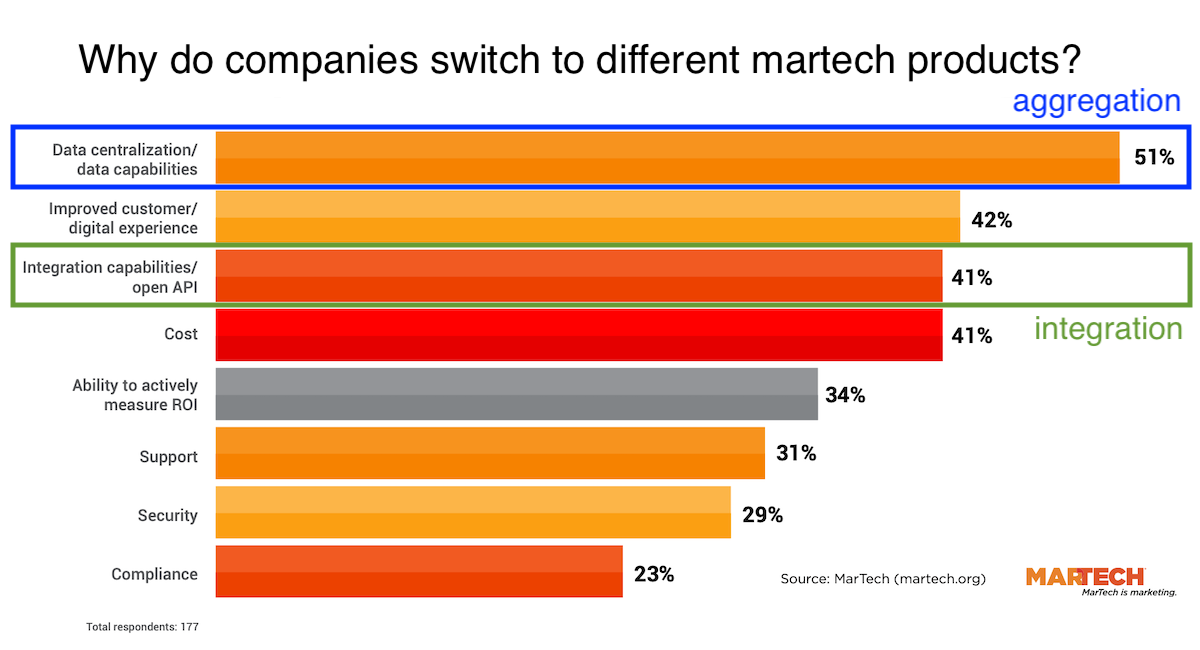
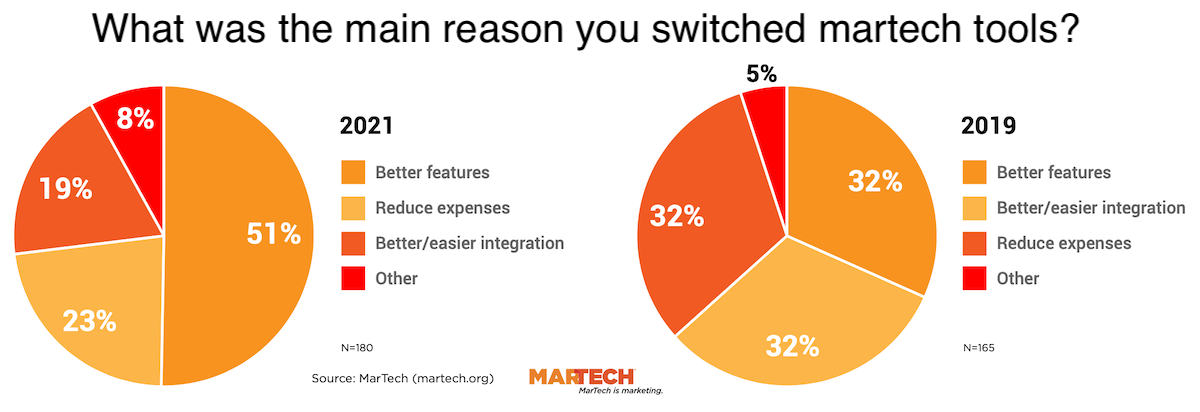
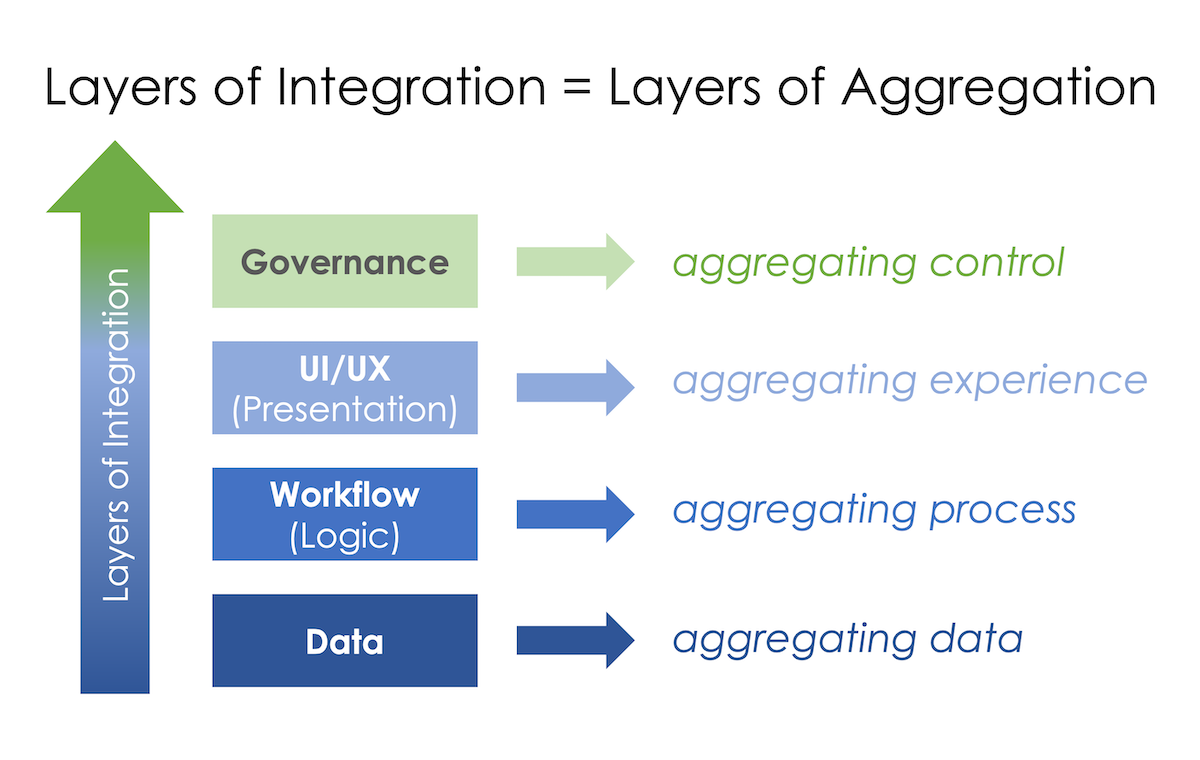
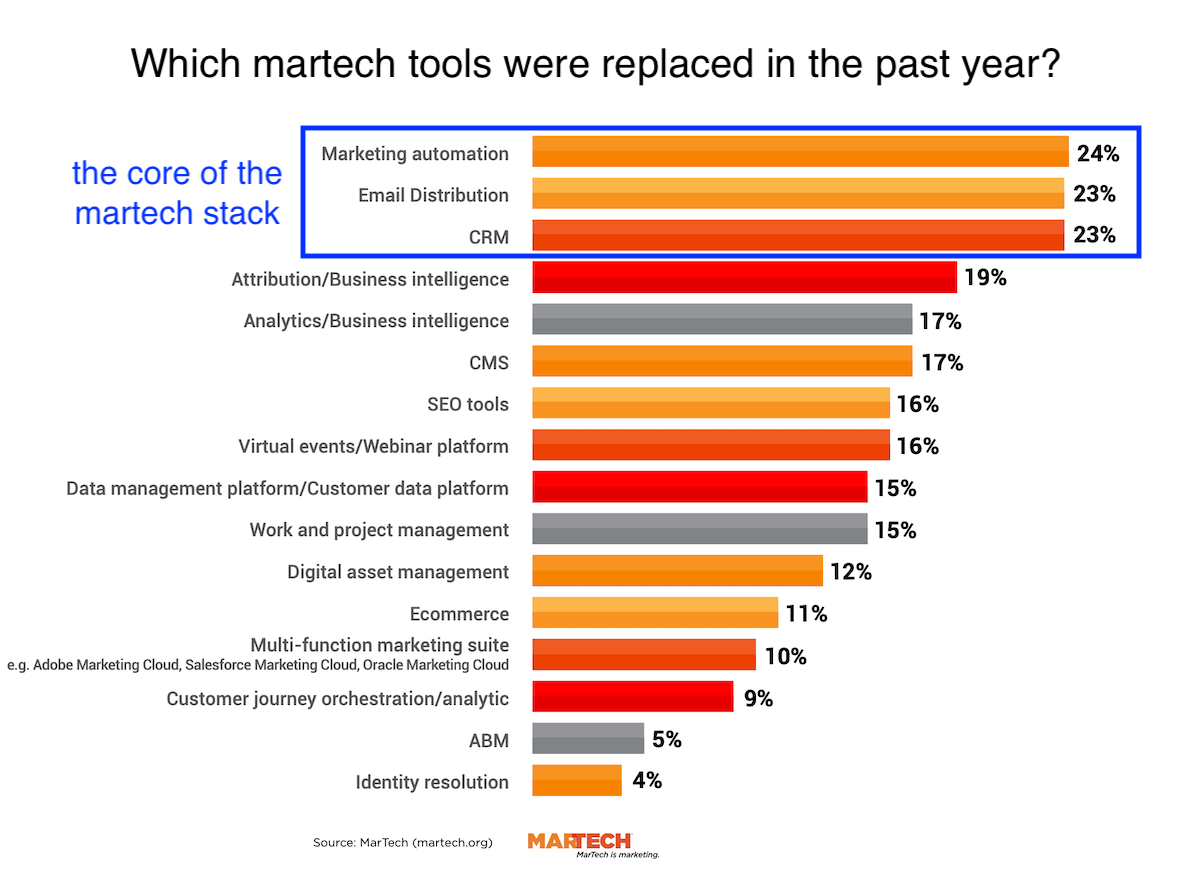
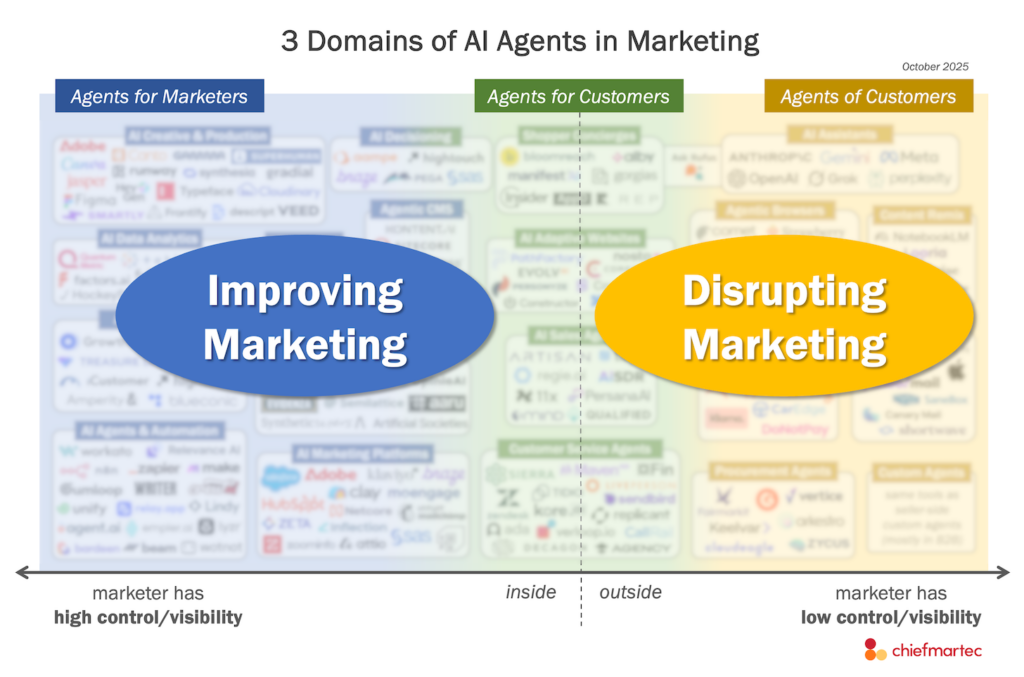
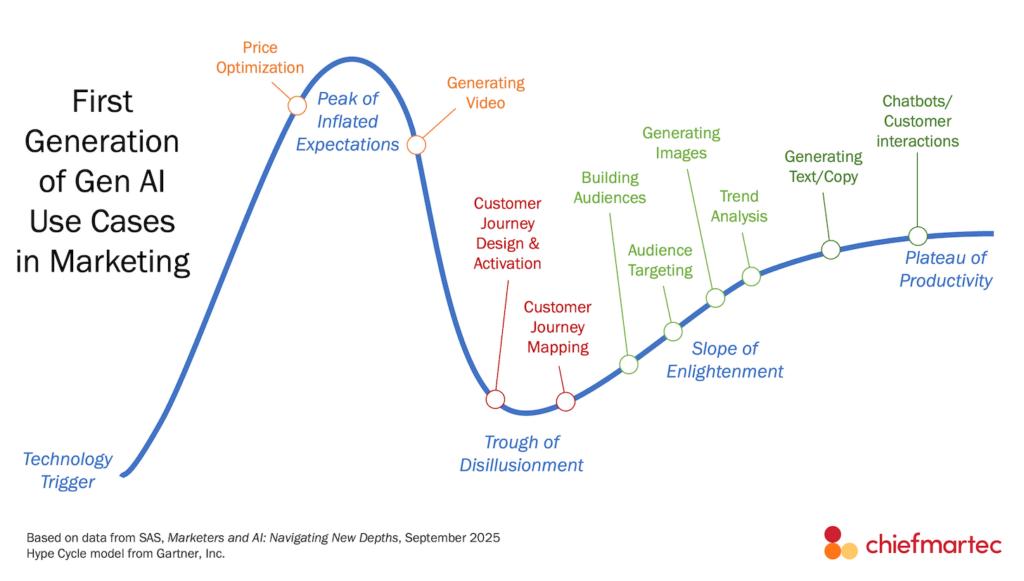
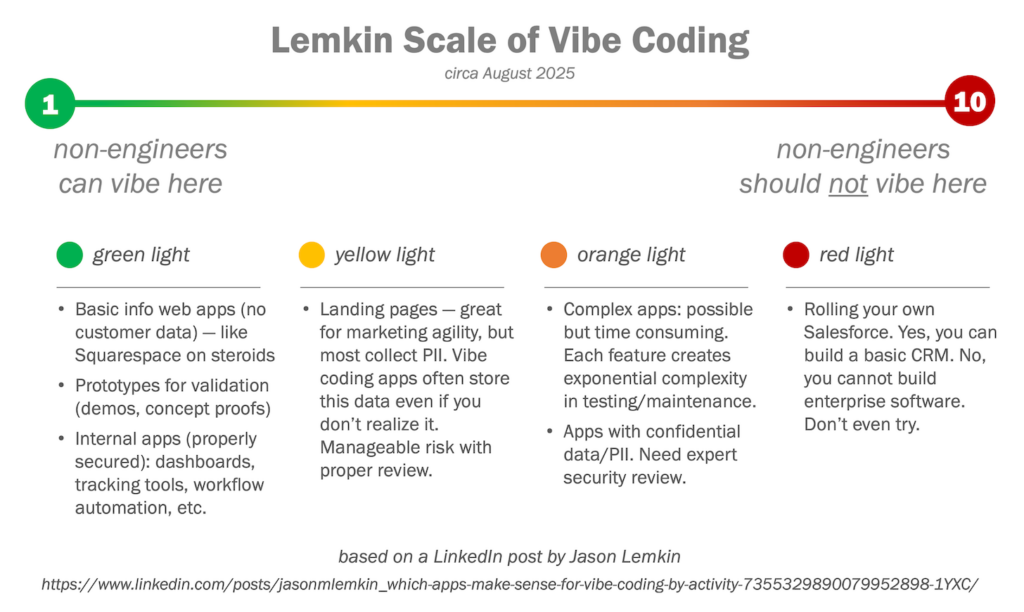
That is very interesting. Curious to know if the % of reasons changed when switching for particular tool.
For instance is Data Centralization the #1 for Work and project management tools?
That would be a fascinating breakdown of the data. We’ll see if the MarTech crew releases more details at their upcoming conference.